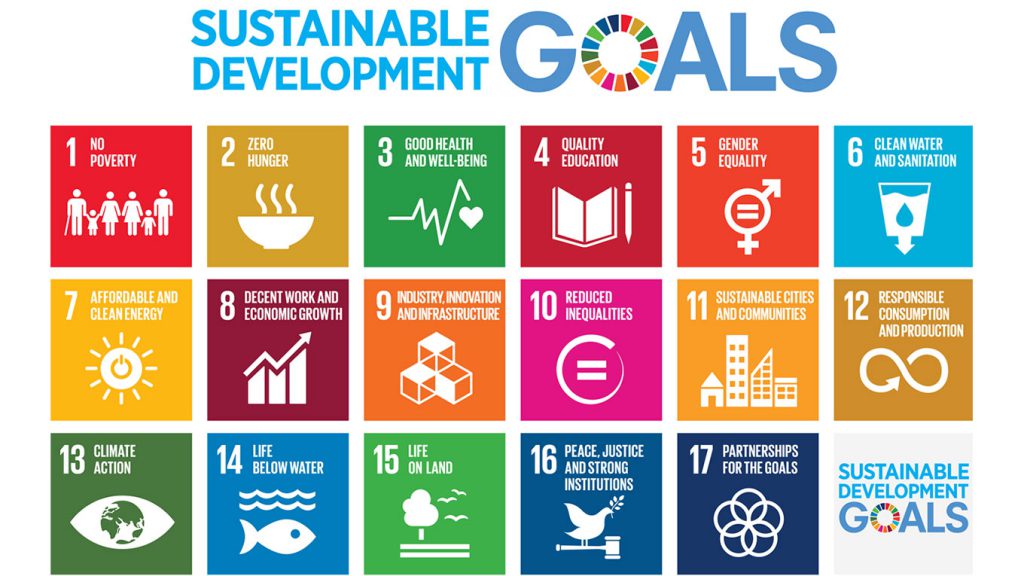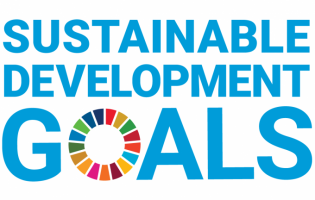In the midst of the pandemic that has encumbered the entire world, on the 75th UN Anniversary and 5th Anniversary of the SDG’s creation, this year we embark into the new decade of the 2030 agenda. The Sustainable Development Goals deep into its collective journey have an unprecedented grasp capacity and gravity. The progress ongoing, although not in the speed or extension required. To achieve and generate success, all sectors of society (social, public, private) are required to be mobilized in order to enhance SDGs implementation. This is a decade of action, dedication and successful outcomes, with ICTs being the most important catalyst for SDGs.

Firstly, from the earliest technological invention to the implementation of computers and broadband into our everyday lives, technological innovations have been the backbone of human progress and world development. Nowadays the world is divided into ‘developed’ and ‘developing’ according to the technological utilization, serving as a catalyst of development. In terms of ICTs, the global division has never been more visible and the hemispheres more divided. These technologies help in creation of knowledge, enhance innovations, which touch upon every aspect of modern day society. Above all, it empowers its users and creates global interconnectedness. With an enormous potential to foster the progress and bridge the digital divide, due to its uneven distribution, it can hardly be fully utilized and implemented, thus decelerating the sustainable development progress.
According to Heeks, “In a globalised world, the problems of the poor today can – through migration, terrorism, disease epidemics – become the problems of those at the top of the pyramid tomorrow. Conversely, as the poor get richer, they buy more of the goods and services that industrialised countries produce, ensuring a benefit to all from poverty reduction. And there is personal self-interest. Compare designing a system for an African or Asian community to doing the same for a company in the global North. The former is quite simply more interesting – a richer, more satisfying, more colourful experience.” (Heeks, 2008: 26)
Respectively, in order to complete the realization of SDGs, ICT is essential. ICT can highlight the importance of the new technologies, by using social networks or mobile technologies at speedy rate, whilst making sure the new workers can be properly educated in the new technologies domain. Its successful assimilation depends on understanding of their social and cultural influence and accelerated action on 2030 Agenda.
Similarly, looking into statistics, Ericsson states, ‘today, 4.9 billion people are subscribers of mobile services using either a smart phone or a device with mobile Internet features. In continuation, by 2021 Ericsson forecasts, more than 6 billion people will be subscribers of mobile services with the share 3G/4G/5G users sharply increasing to 86 percent, ultimately by 2021, 2.7 billion more people will become connected to the Internet over mobile networks compared with today.’
“No other domain in the recent past had such a strong influence on the development of countries and societies than information and communication technologies (ICTs), especially in driving today’s innovation, efficiency and effectiveness across all sectors.”(Tjoa and Tjoa, 2016)
With the right utilization, ICTs can help deliver the transformative advancement the world needs to meet the ambitious SDG’s, and ensure openness and efficiency in the long run.
In the next couple of weeks, I will research and review different ways of how ICTs work towards fulfillment of 2030 Agenda.
In addition, to broaden the overall awareness, watch the Global Forecast, where “ Nations United” presents the facts, data and opportunities for reimagining and reshaping the future.
References
Ericsson.com. 2020. [online] Available at: <https://www.ericsson.com/assets/local/news/2016/05/ict-sdg.pdf
Heeks, R., 2017. Information And Communication Technology For Development (ICT4D). Routledge.
Tjoa, A. and Tjoa, S., 2016. The Role of ICT to Achieve the UN Sustainable Development Goals (SDG). ICT for Promoting Human Development and Protecting the Environment, pp.3-13.
United Nations Sustainable Development. 2020. Take Action For The Sustainable Development Goals. [online] Available at: <https://www.un.org/sustainabledevelopment/sustainable-development-goals/


